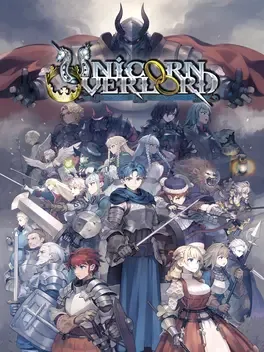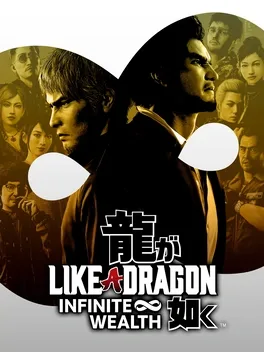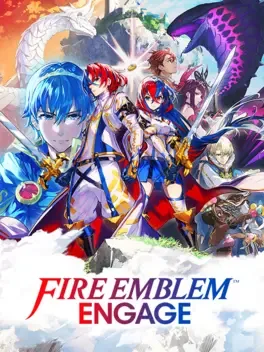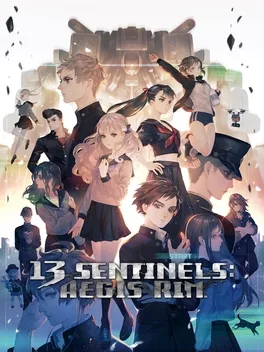Cody Gravelle
This author account hasn't been claimed yet. To claim this account, please contact the outlet owner to request access.
Writing For
Latest Reviews
Each story mission is based on a key moment in Solo Leveling lore. Whether it's the earliest days of Sung Jinwoo as humanity's weakest hunter or far deeper into his adventure, when he becomes humanity's cheat code against otherworldly threats, the missions will feature dialog and sometimes panels from the manwha to emphasize what's happening. Perhaps the biggest detriment of Solo Leveling: ARISE's story mode is just how far it goes into the source material - those who are following the IP through its anime adaptation will be subject to spoilers if they progress too far. The upside is that the story mode is so well done it's essentially like reading the manwha anyways; fans won't miss out on key moments or see them glossed over too much.
If there's one major knock against Unicorn Overlord, it's that its story and characters are just a bit below what I'd expect from the same studio that produced 13 Sentinels: Aegis Rim. It's clear Vanillaware is capable of designing some standout protagonists, but that doesn't really happen in Unicorn Overlord, which prioritizes quantity over quality. Alain is a pretty dull hero at the best of times, even with the ability to choose options for him in key moments, and the cast around him is almost entirely made up of fantasy stereotypes. The witch who is older than she looks, the princess who wants to be a warrior, the rogue with a heart of gold; they're all here, and they don't really have any twists, either.
Infinite Wealth also takes the job system that was so brilliant in the original Like A Dragon and makes it more accessible. Returning jobs like Hero, Homeless Guy, and Hostess are all fun, but new jobs steal the spotlight, with Samurai, Desperado, and Kunoichi some of the best of the bunch. Characters simply level their jobs at a better pace in Infinite Wealth, which means there's less slogging through repeated content and grinding to unlock better combinations of job skills. Bonds between teammates, which are raised through combat, gifts, special dialogue scattered across the map, and more, also play a key role. Certain levels of bonding unlock combat options like follow-up attacks, tag team specials, and chain attacks, all of which expand the combat's tactical system even more. Combining three different job skills and coming up just short on damage only to have your favorite character's bonds result in that last bit of extra damage is an extremely satisfying experience.
While the customization system is a little different from Persona 5, it's familiar the same way that the combat nuances and aesthetics are in Persona 5 Tactica. Players gain access to a skill tree for each character that allows them to focus on what specific strengths they want them to have, functioning almost like a job selection in a traditional RPG, especially early on when GP is hard to come by. It also means the Phantom Thieves can be deployed in pretty much any combination as long as skill trees have been developed in ways that are complementary to each other, which allows for some team-ups that may not have been strategically savvy in the RPG proper.
Honestly, in a game as complex and exciting as RAIN CODE, the need to find pieces of evidence on the fly during real-time combat is more annoying than anything else. While it's clear what the intent was - create a sense of pressure that a detective really would feel, pressed for time and trying to solve a baffling mystery - in practice it's simply frustrating, and rushes through what could be an enjoyable, intricate process. Piecing together the mystery at the end of the Mystery Dungeon by filling in the gaps of the case's narrative without being pressed for time is already in the game and shows how fun it could be by just letting its foot off the gas a little bit and giving Yuma, and players, time to breathe.
Fire Emblem Engage follows the story of Alear, a divine dragon awoken from a thousand year slumber to find the continent of Elyos in dire straits. The threat of an evil force - the Fell Dragon - has begun to permeate the society of each country, and the once idyllic peace the amnesiac Alear helped establish is now crumbling at the seams. If that narrative sounds generic, it is, painfully so at times. For all of the great world and character building that Three Houses demonstrated the series can bring to life, Engage has pretty much none of it.
Now, 13 Sentinels: Aegis Rim is coming to Nintendo Switch, where that platform's broader appeal and accessibility gives it a second chance to be discovered by those who might enjoy it. The game follows 13 different characters as they explore a broad array of timelines and sci-fi experiences, piloting mechs in an effort to save multiple worlds - while also being teenagers (sometimes). These interactions are portrayed through each character's eyes as the player inhabits their perspective across various stories that intertwine, and the result is a complex narrative that, while stumbling in spots, ends up shining through as an excellent and unexpected tale.
Iki Island also adds a few new features beyond another look at Ghost of Tsushima's engrossing hero. Animal sanctuaries allow Jin to show his softer side by interacting with various wildlife, and is a natural extension of the "pet the fox" feature that endeared itself well to so many players. Horse charges are the most noticeable change to combat, allowing for Jin to do some more ridiculous types of combat engagements that previously didn't exist within the game. It's good in small doses, which is exactly how it slots into the existing combat system, so it's a welcome addition to the game's variety of mechanical options during fighting.
Gameplay in NEO: The World Ends With You largely follows a pattern of solving puzzles in Shibuya to gain access to more districts and locales, then fighting through waves of Noise or bosses to advance the team's progress. There are sidequests and other elements, like Scramble Slam, which shake up the progression system further, but battles are central to the experience of NEO and, thankfully, also one of its best elements. Combat is fluid, with snappy button inputs feeling both responsive and easy to manage. Players will control each member of their team by using the buttons assigned to each of their abilities, all the while moving whichever character they used most recently to navigate the battlefield and dodge incoming attacks.
The Last Remnant has a great combat system. Is that enough to make it worth a look a decade after its initial release? Find out in our The Last Remnant Remastered review.









